- Home
- Karen Marie Moning
The Highlander's Touch Page 21
The Highlander's Touch Read online
Page 21
“But you could die,” she said. “There’s a war going on—”
“Shh.” He drew her close and rolled from his back to his side, so they lay facing each other, their heads sharing a pillow, their noses touching. “I swear to you that I will not die. Do you trust me, lass?”
“Yes. But I don’t understand. How could anyone possibly swear that they won’t die? Even you can’t control that.”
“Trust me. Have no fear for me, Lisa. It would be wasted fear. Let’s just say my unique abilities include the knowledge of when I will die, and it will not be for a very long time.”
She was silent, and he felt a shiver run through her.
He knew she was hearing more than his words, was feeling his intent behind them. They had a new awareness of each other that transcended words, as if their souls had become entangled. Via that bond, she was comforted, sensing truth in his words, although she didn’t understand the how or why of it. He held her, reveling in their strange tie. He sensed the moment at which she relinquished her fears and relaxed, not merely because she wet her lip and glanced at him provocatively.
And what he felt next needed no words.
ADAM SIFTED THE GRAINS OF TIME AND DARTED through them to the isle of Morar. He would relax there for a day or so, ponder the developments, study the potentials, and determine where his gentle nudging might be required. Things were progressing well, and he had no intention of losing what he’d thus far gained. He’d experienced a bit of concern during the time she’d remained in her chambers, grieving, but she had indeed been as strong as he’d suspected, emerging ready for love.
And how lovely she’d been in her bath, he reflected with a smile.
As his feet hit the beach, he willed his clothing gone, then he strolled languidly, burying his toes deep in the wet, silky-warm sand. Once, he’d walked on a California beach, nude in the full glory of his true form. Thousands of Californians had been stricken by high fevers that had erupted in public displays of eroticism.
He loved being Adam.
The sun beat down upon his muscled chest, a tropical breeze licked his dark hair. He was a pagan god, savoring his world—there was no better place to be.
Most of the time.
In the bay, a ship sailed past. Adam grinned and waved. The pitiful occupants of the ship could no more see the island than they could fly to the stars. The exotic isle simply didn’t exist, in the usual sense of the word. But fairy isles were like that—in the mortal world, but not of the mortal world. Occasionally, a mortal was born who could see both worlds, but those creatures were rare, and usually stolen quickly after birth by the Tuatha de Danaan, to minimize the risk. Ever since Manannán had given his people the drink of immortality and the Compact had been negotiated, the Tuatha de Danaan had been exceedingly cautious when treading in the world of man.
Still, Adam thought, there were times when even a demigod such as himself couldn’t resist. There was something about the world of man that fascinated him, made him think he had perhaps once been more similar to them than he could clearly recall, his memories dimmed by time’s passage.
“In what merriment have you been indulging?” Aoibheal, Queen of the Fairies, purred behind him.
She joined him, her long, beautiful legs keeping pace with his, and guided him toward a crimson chaise that conveniently appeared before them. She sank into it and patted the cushions, indicating that he should join her. She glistened, sprinkled in gold dust as was her custom. Were he to run his finger down her, it would come away glittering with fine gold powder. He had long suspected the dust contained an aphrodisiac that penetrated the skin of those who touched her, rendering them powerless to refuse her.
When she beckoned him intimately near, he masked his astonishment. It had been an eternity since his queen had invited him to share her pillowed haven. What was she up to? As he sank down beside her, she molded her body against his. He exhaled a low rush of breath, the equivalent of a human shiver. She was the Queen of the Tuatha de Danaan for a reason: Her power was enormous, her allure immense. She was erotic, and many found her frightening; a mere mortal could lose his life in her arms, drained by her appetites. Even among Adam’s kind, males had walked away from her boudoir changed.
“Naught to worry, my Queen, I have been but passing idle time with Circenn.” Unable to resist, he kissed a golden nipple, dragging his tongue across the peak.
Aoibheal watched him, her unusual eyes bright, her head propped upon a delicate fist. She fisted her other hand in his hair and lifted his head from her breast. Her exotically slanted eyes were ancient in her ageless face. “Think you I know not of the woman?” she said. “You’ve done it again. How far do you think you may push our limits?”
“I did not bring her through time. It was not my doing. Circenn cursed something, and, as a result, the woman was brought back to his century.”
“I see.” She stretched her long, slim body languidly, sweeping the curve of her breasts against him. “Please remind me, I seem to be forgetting—who was it that taught Circenn Brodie how to curse things in the first place?”
Adam acknowledged his guilt with silence.
“Assure me, fool mine, that you had nothing to do with precisely when and where that cursed object was found. You did not perhaps nudge it a bit in one direction?”
“I no more nudged the object than arranged the battle in which it was lost.”
She laughed softly. “Ah, another Adam-ism—that which confesses nothing while arrogantly concealing nothing. I have seen her. I went to Brodie and inspected her. I find her quite … interesting.”
“Leave her alone,” Adam snapped.
“So you do have an interest in this, although you conveniently blame it on that Scot laird.” She cocked her head and regarded him coolly. “You will not interfere again. I know you’ve been visiting her in another guise. Eirren will pay her court no more. No.” She raised a hand when he would have protested. “Amadan Dubh, I compel you thusly: You will leave neither my side nor the isle of Morar unless I grant you permission.”
Adam hissed. “How dare you!”
“I dare anything. I am your Queen, though you seem to forget it from time to time. You pay clever tithes to my supremacy with your lips, but you defy me over and again. You have gone too far. You broke one of our most serious covenants with Circenn Brodie, and now you dare to compound it. I will not tolerate it.”
“You are jealous,” Adam said cruelly. “You resent my attachment—”
“It is unnatural!” Aoibheal hissed. “You should have no such attachment! It is not our way!”
“It was done long ago and cannot be undone. Do not think to constrain me. I will only find a way around it.”
Aoibheal arched a gilded brow. “I think not, Amadan, for you are at my side until I release you. My command was clear. Ponder it. There is no weak spot for you to exploit.”
In his mind, Adam sorted through her words. Her command had been simple, direct, and flawless. His eyes widened as he comprehended how completely she had snared him with so few words. Most who tried to command him composed lengthy written canons, like that boorish Sidheach Douglas at Dalkeith-Upon-the-Sea, who’d written a veritable book. But sometimes, less was truly more, and she had chosen her words well. He could leave neither her nor the island unless and until she said so. “But they will sully my creation.”
“I care not. From this moment on, you are powerless in their lives. Amadan Dubh: I take from you the gift of sifting time.”
“Stop!”
“Obey me and cease your tiresome protests.”
“You bitch.”
“For that I take from you your ability to weave worlds.”
Adam fell silent, his face ashen. The Queen could strip everything from him, if she so desired.
“Are you quite finished?” she asked silkily.
Adam nodded, not trusting himself to speak.
“Good. When it is done, I will release you. When they have played out their
choices. Now come, lovely fool: Show me you still know how to please a Queen, and make it your finest effort, for you have offended me most egregiously and I shall require much in the way of … mmm.”
* * *
Robert the Bruce was fuming. The travel-stained, weary messenger who stood before him shuffled miserably, awaiting the fatal blow. He eyed the Bruce’s sword, knowing that the moment his king pulled it from its scabbard, he would likely lose his courage and dignity and beg or, worse, run.
“What was my brother thinking?”
“I doona know that he was,” the messenger replied dejectedly. “They were well besotted with whisky.”
“Had he been drinking with the English again?” Robert’s lips curled in a sneer.
The messenger nodded, afraid to speak.
“How dare he be the one to determine the time and place for my battles?” Robert thundered. He couldn’t believe what the messenger had imparted: His brother Edward, who was in charge of the siege against Stirling Castle, which was being held by the English, had made a “wager” with the Englishman holding it. A wager! A drink-induced challenge, and booty far more valuable than Stirling itself was the prize.
An admission of defeat was the prize, a full retreat from the battle for the crown. Robert could nearly feel his kingdom slipping from his tenuous grasp. His men weren’t yet ready for this battle. He needed more time.
“You may be underestimating your men,” Niall McIllioch said. “I know it often seems the present is not the right time, but perhaps it is.”
Robert shot him a furious glance. “Exactly what were the words exchanged?” he demanded of the ashen messenger.
The messenger winced and glanced around the dim interior of the Bruce’s tent, seeking help. No one came to his aid. Two blue-eyed Berserkers watched his every move from the shadows—as if that wasn’t enough to make a man collapse in a puddle of fear! He sighed, resigned to further infuriating his king.
“Sir Philip de Mowbray, the current commander of the English forces at Stirling, wagered with your brother thusly: If a relieving English army does not approach to within three miles of Stirling Castle by Midsummer’s Day, he will surrender the castle to you and your brother and leave Scotland, never to return. If the relieving army successfully attains Stirling, you will give up your fight for Scotland’s independence.”
“And my dim-witted brother Edward accepted this?” Robert roared.
“Aye.”
Robert shook his head. “Does he not realize what this means? Does he not realize that King Edward will gather every troop he has—English, Welsh, Irish, French, supported by every mercenary he can hire—and drive them into my land in less than two weeks’ time?”
No one breathed in the tent.
“Does my idiot brother not realize that England has triple our mounted men, quadruple our spearmen and archers?”
“But they’re our hills and valleys,” Niall reminded softly. “We know this land. We know what advantages to exploit, and doona forget, we have Brodie and his Templars. We have the gentle mists and bogs. We can do this, Robert. We’ve been fighting for years for our freedom and we have yet attained no decisive victory. It is time now. Doona underestimate the men who follow you. We have two weeks to rally the forces. Believe in us as we have believed in you.”
Robert drew a deep breath and pondered Niall’s words. Had he been too cautious? Had he been willing to fight only small battles because it wouldn’t be such a terrible loss if they failed? Had he unwisely restrained his men from a major war because he feared the possibility of defeat? Circenn had been impatient to war. His Berserkers were impatient to war, aye—and his own impatient brother had wagered their future. Perhaps they were all impatient because it was time.
“Let us summon Brodie. This is what you’ve been waiting for,” Niall said firmly.
“Aye, milord,” said Lulach, Niall’s brother. “If we prevent Edward’s army from reaching Stirling, we will have turned the tides. We will be unstoppable, and if ever the time was now, the time is now. Plantagenet grows weaker in his own country; many of his own lords will not follow him into our land. I say we face this wager boldly, as a gift of fate.”
Robert nodded finally. To the messenger, he said, “Get you to Castle Brodie with all haste. Command Circenn to bring his men to join us at St. Ninian’s Church by the Roman road. Tell him time is of the essence and to bring every weapon he possesses.”
The messenger expelled a relieved breath and fled the tent for Inverness.
* * *
Lisa and Circenn explored each other with uninhibited joy, withdrawing completely into a world of their own making. Circenn laughed more than he had in centuries. Lisa talked more, voicing thoughts and feelings she hadn’t even suspected lay dormant within her. In this way they rediscovered themselves, opening up closed compartments that needed the light of day.
The two of them roamed the estate, picnicking in the fresh spring air, dashing off to the bothy for a private moment. It was there that Lisa confided to Circenn what she’d seen Duncan doing with Alesone.
“Did you look?” He scowled possessively. “Did you see him entirely in the blush?”
“Yes.” Lisa’s cheeks heated.
“I doona care for that thought. You will not look upon another man unclothed for the rest of your life.”
Lisa laughed. He sounded so thoroughly medieval. “He didn’t look as good as you.”
“I still doona care. It makes me angry with Duncan merely for being a man.”
Then he erased her memory of the young, virile Douglas, against the wall in the bothy.
Twice.
They spent long nights in his bed, in her bed, on the stairs late one night when the Greathall was deserted. She told him about her life, and slowly, haltingly, he began to tell her of his. But there she sensed he was holding something back. Because of their odd connection, she could feel a darkness in him that waxed and waned without explanation. Sometimes, when he watched the children playing outside in the courtyard, he grew silent, and she could feel that peculiar mixture of anguish and anger that she simply didn’t understand.
The castle staff was delighted with the laird’s newfound laughter, and Duncan and Galan beamed when they dined together. Gone were the private seduction dinners—Circenn saved that for later in the privacy of their chambers. Meals were now taken not in the formal dining hall but in the Greathall, with an assortment of knights and the occasional Templar.
Lisa was slowly and irresistibly becoming fourteenth-century. She learned to love the flowing gowns and tartans, even sitting with some of the women, watching them dye the fibers and fashion the Brodie weave.
She loved the fact that people sat about the hearth and talked in the evening, rather than retreating to their individual electronic worlds of television, phones, and computer games. They possessed richly detailed oral histories and were eager to share them. Duncan and Galan knew their clan history centuries back and wove grand tales of the many Douglas heroes. Lisa listened and sorted through her own genealogy, looking for a Stone to speak of, but who cared if one’s uncle was a lawyer? Could he chop wood and carry water?
Blissfully the days and nights unfurled, and Lisa realized that she now understood why her mother had lost the will to live when Jack died. If her mom had felt a tenth of what Lisa felt for Circenn, it would have been devastating for Catherine to lose her husband. And her mother had lost so much in one day—her love, her ability to walk, her entire way of life. Lisa attained a new respect for her mother’s strength, only now understanding the extent of her mother’s loss and the pain it must have caused her to continue living without Jack.
Circenn’s strength and love were always curled around her like a protective cloak. She couldn’t imagine how she’d lived before without it. The link between them kept her constantly aware of him, no matter where he was. It was never invasive, but she’d discovered—feeling a need for complete privacy while using the chamber pot—that it could be di
mmed if she wished. She would never be lonely again. Sometimes, when he was far away, riding with his men, something would amuse him and she would sense his rich laughter rolling inside her, although she would have no idea what had made him laugh.
At other times she would feel his frustration while he was off with his knights, and without even knowing what he was angry about, she would be flooded by his raw masculinity that roared to wield a battle-ax and actively protect his homeland. Via their bond, she experienced masculine emotions and drives she’d never understood before, and was fascinated by the knowledge that he was feeling her more tender, womanly ones.
It wasn’t until she asked him if he knew of a puppy she might adopt that she choked on a deep, bitter swallow of the blackness inside him.
They were sitting on the stone bench by the reflecting pool—it had become a favorite spot of theirs—watching some children tossing a bladder ball in the courtyard. A small mutt had plunged into the melee and grabbed the ball between his sharp teeth, and when it had burst against his whiskers, he’d shot straight up into the air, yipping frantically, comically trying to scrape the remains of the skin off his nose. While the children had giggled helplessly, Lisa had laughed until tears sparkled in her eyes.
“I want a puppy,” she said, when her amusement subsided. “I’ve always wanted one, but our apartment was too small and—”
“No.”
Perplexed, her smile faded. A wave of sorrow engulfed her, radiating from him. It cloaked her in a deep sense of futility. “Why?”
He brooded, staring at the yapping mutt. “Why would you want a puppy? They doona live long, you know.”
“Yes, they do. They can live ten to fifteen years, depending on the breed.”
“Ten to fifteen years. Then they die.”
“Yes,” Lisa agreed, unable to fathom his resistance. Another wave of darkness and anger surged around her. “Did you have a puppy once?”

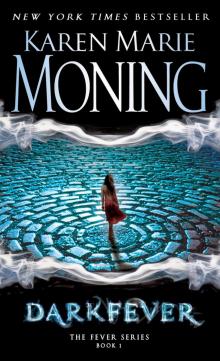 Darkfever
Darkfever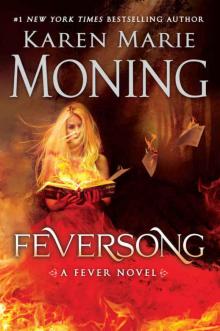 Feversong
Feversong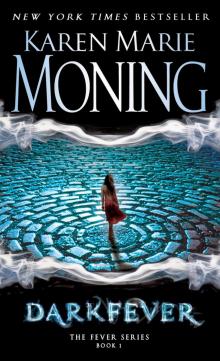 Faefever
Faefever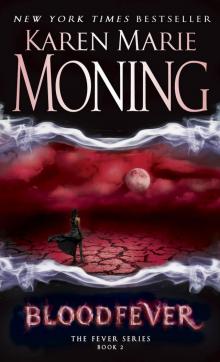 Bloodfever
Bloodfever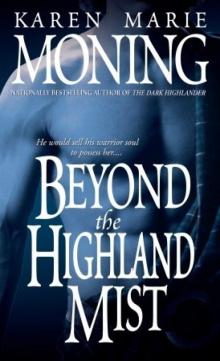 Beyond the Highland Mist
Beyond the Highland Mist Iced
Iced High Voltage
High Voltage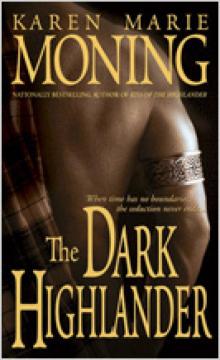 The Dark Highlander
The Dark Highlander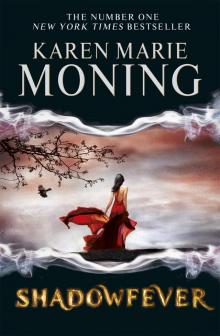 Shadowfever
Shadowfever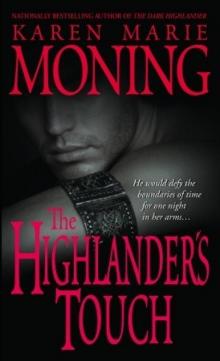 The Highlander's Touch
The Highlander's Touch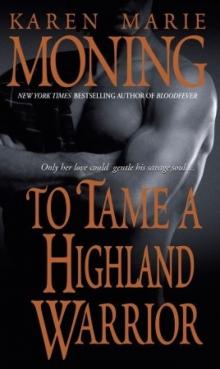 To Tame a Highland Warrior
To Tame a Highland Warrior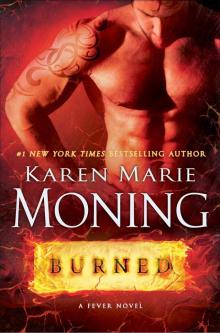 Burned
Burned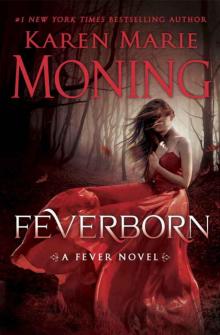 Feverborn
Feverborn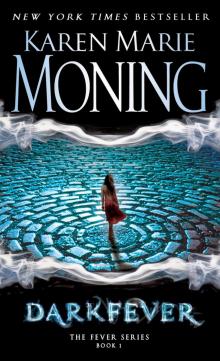 Dreamfever
Dreamfever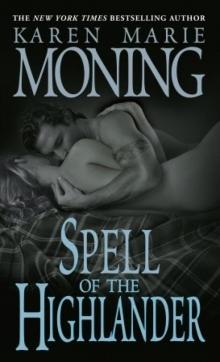 Spell of the Highlander
Spell of the Highlander Kiss of the Highlander
Kiss of the Highlander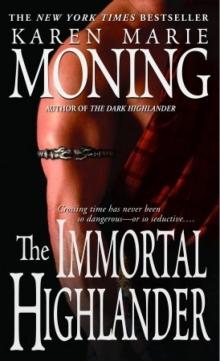 The Immortal Highlander
The Immortal Highlander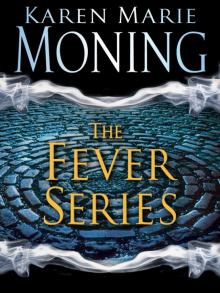 Karen Marie Moning’s Fever Series 5-Book Bundle: Darkfever, Bloodfever, Faefever, Dreamfever, Shadowfever
Karen Marie Moning’s Fever Series 5-Book Bundle: Darkfever, Bloodfever, Faefever, Dreamfever, Shadowfever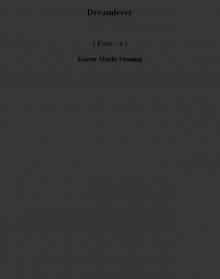 Dreamfever f-4
Dreamfever f-4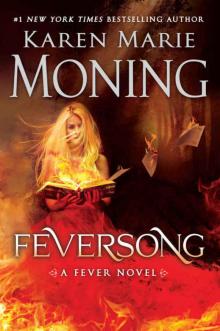 Feversong: A Fever Novel
Feversong: A Fever Novel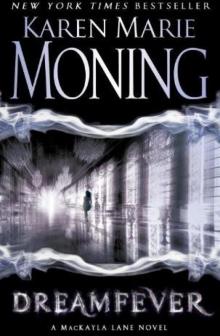 Dreamfever_The Fever Series
Dreamfever_The Fever Series The Highlander Series 7-Book Bundle
The Highlander Series 7-Book Bundle![[Highlander 04] - Kiss of the Highlander Read online](http://i1.bookreadfree.com/i1/03/29/highlander_04_-_kiss_of_the_highlander_preview.jpg) [Highlander 04] - Kiss of the Highlander
[Highlander 04] - Kiss of the Highlander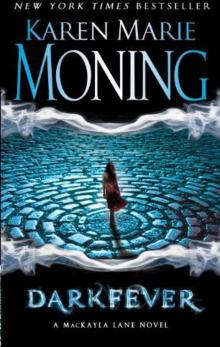 Darkfever_The Fever Series
Darkfever_The Fever Series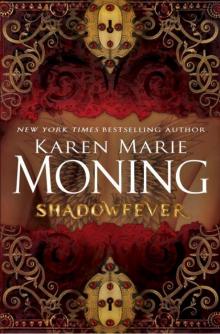 Shadowfever_Fever
Shadowfever_Fever Iced: A Dani O'Malley Novel (Fever Series)
Iced: A Dani O'Malley Novel (Fever Series)![Fever [08] Feverborn Read online](http://i1.bookreadfree.com/i2/04/09/fever_08_feverborn_preview.jpg) Fever [08] Feverborn
Fever [08] Feverborn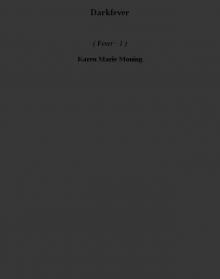 Darkfever f-1
Darkfever f-1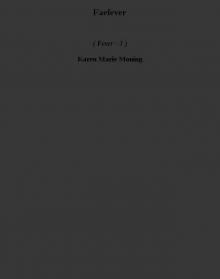 Faefever f-3
Faefever f-3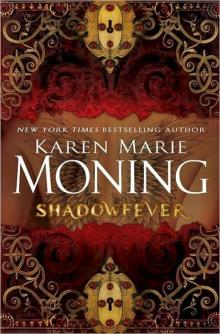 Shadowfever f-5
Shadowfever f-5 Bloodfever f-2
Bloodfever f-2